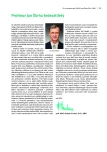-
Medical journals
- Career
Hypoglycemia as a limitation to the treatment of diabetes mellitus
Authors: Jindřich Olšovský
Authors‘ workplace: II. interní klinika LF MU a FN u sv. Anny Brno, přednosta prof. MUDr. Miroslav Souček, CSc.
Published in: Vnitř Lék 2014; 60(9): 737-740
Category:
Overview
In his paper, the author deals with hypoglycemia-related problems as the most frequent complication of the therapy for diabetes mellitus (DM). He points to threats that patients with hypoglycemia are exposed to, but also gives attention to risk groups of patients with regard to hypoglycemia development as well as different levels of the risk related to different antidiabetics.
Key words:
antidiabetics – diabetes mellitus – hypoglycemia
Sources
1. UKPDS Group. U.K. Prospective Diabetes Study 16: Overview of 6 Years’ Therapy of Type II Diabetes: A Progressive Disease. Diabetes 1995; 44(11): 1249–1258.
2. Bonds DE, Miller ME, Bergenstal RM et al. The association between symptomatic, severe hypoglycaemia and mortality in type 2 diabetes: retrospective epidemiological analysis of the ACCORD study. BMJ 2010; 340: b4909. Dostupné z DOI: <http://doi: 10.1136/bmj.b4909>.
3. Allen KV, Frier BM. Nocturnal hypoglycaemie: clinical manifestations and therapeutic strategie toward prevention. Endocr Pract 2003; 9(6): 530–543.
4. Donnelly LA, Morris AD, Frier BM et al. Frequency and predictors of hypoglycaemia in Type 1 and insulin-treated Type 2 diabetes: a population-based study. Diabet Medicine 2005; 22(6): 749–755.
5. Chico A, Vidal-Ríos P, Subirà M et al. The continuous glucose monitoring system is useful for detecting unrecognized hypoglycemias in patients with type 1 and type 2 diabetes but is not better than frequent capillary glucose measurements for improving metabolic control. Diabetes Care 2003; 26(4): 1153–1157.
6. Weber KK, Lohmann T, Busch K et al. High frequency of unrecognized hypoglycaemias in patients with Type 2 diabetes is discovered by continuous glucose monitoring. Exp Clin Endocrinol Diabetes 2007; 115(8): 491–494.
7. DCCT Research Group. Epidemiology of severe hypoglycaemia in the diabetes control and complications trial. Am J Med 1991; 90(4): 450–459.
8. Graveling AJ, Frier BM. Impaired awareness of hypoglycaemie, a review. Diabetes Metab 2010; 36(Suppl 3): S64-S74.
9. Cryer PE. Exercise-related hypoglycemia-associated autonomic failure in diabetes. Diabetes 2009; 58(9): 1951–1952.
10. Desouza CV, Bolli GB, Fonseca V et al. Hypoglycemia, diabetes, and cardiovascular events. Diabetes Care 2010; 33(6): 1389–1394.
11. Laitinen T, Lyyra-Laitinen T, Huopio H et al. Electrocardiografic alterations during hyperinsulinemic hypoglycaemia in healty subjects. Ann Noninvasive Electrocardiol 2008; 13(2): 97–105.
12. Johnston SS, Conner C, Aagren M et al. Evidence linking hypoglycemic events to an increased risk of acute cardiovascular events in patients with type 2 diabetes. Diabetes Care 2011; 34(5): 1164–1170.
13. Phung OJ, Scholle JM, Talwar M et al. Effect of noninsulin antidiabetic drugh added to metformin therapy on glycemic control, weight gain and hypoglycaemia in type 2 diabetes. JAMA 2010; 303(14): 1410–1418.
14. Zammit NN, Frier BM. Hypoglycemia in type 2 diabetes: pathophysiology, frequency, and effects of different treatment modalities. Diabetes Care 2005; 28(12): 2948–2961.
15. Frier BM. How hypoglycaemia can affect the life of a person with diabetes. Diabetes Metab Res Rev 2008; 24(2): 87–92.
Labels
Diabetology Endocrinology Internal medicine
Article was published inInternal Medicine

2014 Issue 9-
All articles in this issue
- Basal insulin glargine using a basal-bolus regimen in a common clinical practice: observational, non-interventional, multicenter, national project LINDA (Lantus in daily practice – safety and efficacy in basal bolus regimen)
- AGEs and RAGE – advanced glycation end-products and their receptor in questions and answers
- Liver, kidneys and diabetes: three faces of HNF1B gene deficit
- Problems of differential diagnosis of paraneoplastic hypoglycaemia
- Hypoglycemia as a limitation to the treatment of diabetes mellitus
- Changes of bone metabolism in diabetics
- Insulin resistance – its causes and therapy possibilities
- Glycemic variability and continuous monitoring of glycemia
- Life expectancy of people with type 1 diabetes in the past and today
- Gliptins: a safe and effective treatment of diabetes mellitus
- How we indicate oral antidiabetics today (from metformin to gliptins and gliflozins)
- Receptor pro konečné produkty pokročilé glykace (RAGE) – klíčový hráč diabetické angiopatie?
- Diabetes mellitus and pancreatic cancer – cause or result?
- Diabetes mellitus and pancreatic cancer – cause or result?
- Personalized therapy for diabetes in retrospect and prospect
- First fixed dose combination perindopril arginine-indapamide-amlodipine: new approach in combination therapy in hypertension
- Long-term acting insulin analogues and the risks of hypoglycemic incidence
- Factors causing damage and destruction of beta-cells of the islets of Langerhans in the pancreas
- Calcium, vitamin D and health
- SOLOSTAR study demonstrated high levels of patient satisfaction with the use of the insulin pen SoloStar® in the Czech Republic
- News and perspectives in insulin treatment
- Internal Medicine
- Journal archive
- Current issue
- Online only
- About the journal
Most read in this issue- Life expectancy of people with type 1 diabetes in the past and today
- Gliptins: a safe and effective treatment of diabetes mellitus
- Insulin resistance – its causes and therapy possibilities
- AGEs and RAGE – advanced glycation end-products and their receptor in questions and answers
Login#ADS_BOTTOM_SCRIPTS#Forgotten passwordEnter the email address that you registered with. We will send you instructions on how to set a new password.
- Career

